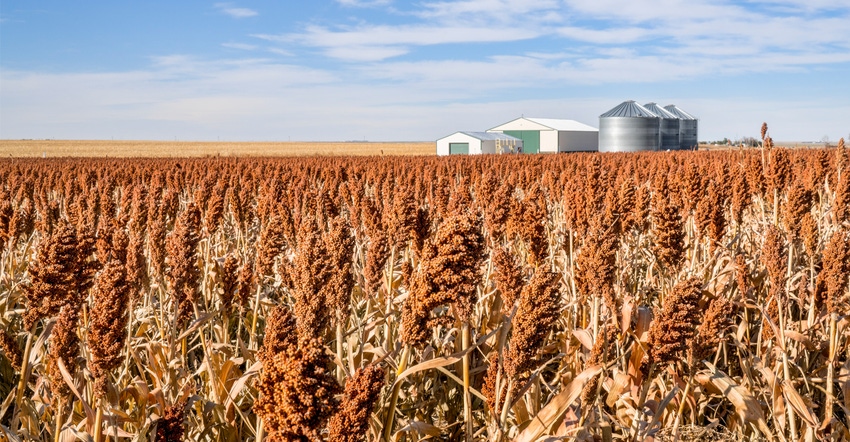
Six farm couples make up the 2020 class of Kansas Master Farmers and Master Farm Homemakers.
The select group of nearly 400 Kansans have been recognized for success in their agricultural operations and service to their communities. The award program is sponsored by Kansas State Research and Extension and Kanas Farmer magazine. These farm families will be recognized at this year’s Kansas State Fair in September.
Growing a dream
Jay Rezac recognized his life’s passion in the fifth grade. That is when the Onaga, Kan., farmer, along with his brother, purchased two gilts from his dad. Today Rezac, along with his wife, Stacy, manages a 400-sow farrow-to-finish hog operation, along with 900 beef cows and 4,500 stockers and backgrounding as part of Rezac Land & Livestock.
The couple is active in their local cooperative, along with the Kansas Young Farmers, Kansas Livestock Association and Kansas Farm Bureau. They open their farming operation to Kanas State University students to practice pregnancy-checking cows, along with their local Pottawatomie County 4-H for beef project meetings and weigh-ins.
Ultimately, the Rezacs find raising their family in a small agricultural community with 4-H, FFA, rodeo and sports as one of their “greatest joys.” Their children continue their ranching legacy by working in the family business.
Keeps on giving
When Keith Doane was just 7, his grandfather gave him a heifer. Over the years he bred and retained cows from this single female, gradually expanding his herd. In fact, he has operated a spring-calving cow herd continuously for the past 70 years.
Keith, along with his wife, Marsha, and their children, runs Doane Family Farms, which consists of 7,700 acres of cropland and 3,000 acres of pasture near Downs, Kan. His livestock portion of the business consists of roughly 250 cows, up to 50 replacement heifers and 10 herd bulls.
As an educator, Marsha wanted to share the farm experience with others, so the family opened their home to students from other countries through a study abroad program. Today, they keep in contact with these students. It is just one way to share a piece of their farming lifestyle.
The family is also active in the local Farm Bureau, Kansas Wheat Association and their church.
Honeymoon is for heifers
It takes more than a wedding to stop Kevin and Vera Schultz of Haviland, Kan., from thinking about cattle. Actually, they started off their marriage right with a ranch visit and subsequent purchase of registered polled Hereford heifers while on their honeymoon.
The Edwards County couple grew up around cattle — Kevin in Kansas and Vera in Nebraska. The couple met at Kansas State University. After graduation, they returned to the Schultz family farm — Sandhill Farms — where Kevin is the sixth generation.
The couple built on that honeymoon purchase and today have 400 registered polled Hereford cows, along with 150 purebred commercial cows. The farming operation also consists of both dryland and irrigated corn, wheat and soybeans.
Over the years, Kevin and Vera have given back to their community by volunteering on the local school board and as 4-H leaders.
College ag class produces farm couple
Lori Elliot was the only woman in the North Central Kansas Area Vo-Tech Production Agriculture class back in the mid-1970s. It is where she met her husband, Howard.
The couple operates Elliot Farms with 3,250 acres of row crops consisting of no till corn and soybeans. The Brown County farmers also run a 50-cow operation with calves sold as feeders.
The Elliots focus on soil health and conservation. It is a legacy passed down from Howard’s parents and grandparents. They maintain waterways and terraces along with their no-till and minimum-till practices. As Howard explains, “One of the most important things for us is that we leave this farm and ground, that we are blessed to oversee for a while, better than it was when we started.”
Family tradition
Ellis Yoder still has the Model M Farmall tractor used to plant his first crop of wheat in McPherson County in 1977. Just one week before harvest, a hailstorm wiped out the entire crop. It was not the return home from his time in the U.S. Air Force that Yoder hoped for, but it did not dampen his drive to continue a family farming legacy.
Today he, along with his wife, Rita, farms 1,538 acres. It is a three-year rotation of wheat, milo and soybeans. The couple incorporate soil health practices like planting into milo stubble and cover crops. In 1986, they received the Kansas Bankers Association Award for soil conservation.
The Yoder family is all about tradition. They have lived in the community for more than 100 years. Ellis says his family was raised to “love kindness and to walk humbly.” They put it into practice with Growing Hope Globally, where for the last 13 years they have donated planting, harvesting and crop income from 18 acres to the organization, which assists small farmers in developing countries.
Making it rain
John and Sharon Hendricks, of Bird City, Kan., make sure their crops have the nutrients they need — including water. John’s father, Sigfred, began irrigating with one of the first pivot systems in Cheyenne County in 1964.
When John returned to the farm from service in the U.S. Army in 1972, he started expanding the operation. Today, of the couple’s 14,000 acres, 3,800 are under irrigation.
They credit the Kansas Farm Management Association for helping the family farm expand. The Hendrickses incorporated no-till farming practices into their corn, wheat, soybeans and milo cropping systems, and they received the Cheyenne County Soil Conservation Bankers Award.
About the Author(s)
You May Also Like






